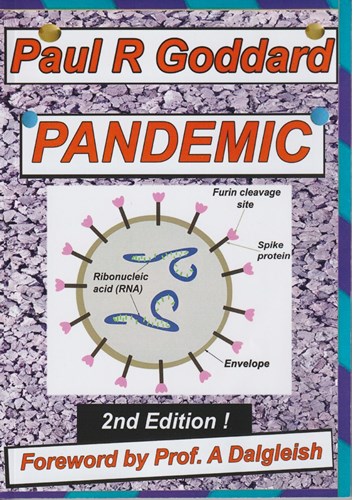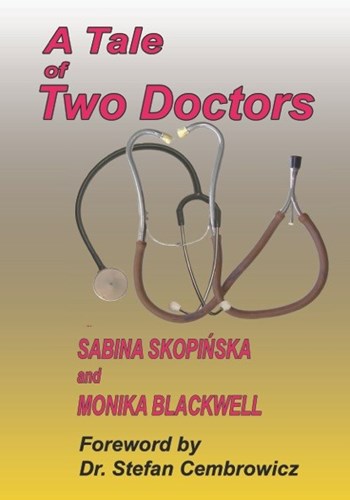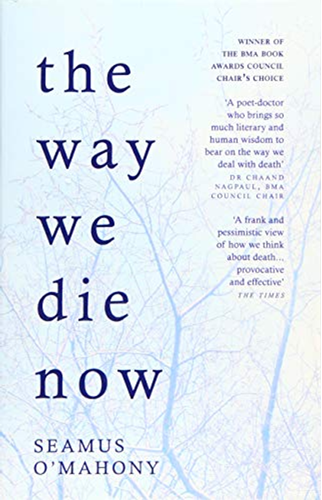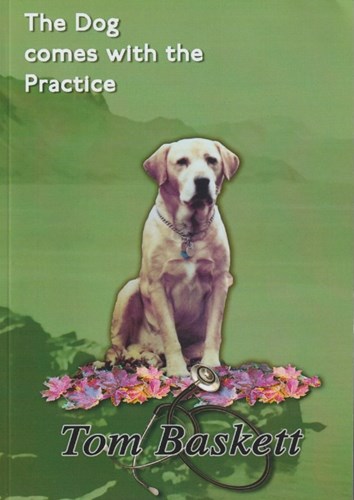Book Reviews
Tom Baskett: the Dog comes with the Practice.
2020 Bristol: Clinical Press IBSN 09781854571014
Review by Peter Carpenter
This book is a series of 25 short chapters each narrating an episode in Tom Baskett's life as a medical student and junior doctor in Northern Ireland covering General practice and Obstetrics, with a few tales from his time in Canada thrown in. At 160 odd pages I found the read a rapid one, that kept my interest and made me not want to put it down. I recommend one allows oneself a quota a day!
Tom's style makes this an easy read. it reads as though spoken except when he inserts short phrases to explain medical terms. it is humorous and self-deprecating, but at times serious and poignant, describing death, coping with the Catholic church approach to contraception and the limits of 1960's medicine. Expect moments of laughter and of sadness when reading. As a historian I found it a worthwhile read as its background descriptions said much about practices at the time, from finding his rugby playing more important than school exam results when getting into medical school, to description of the curriculum, bedside teaching methods and the 'sign of the bloody feet'.
I recommend this as a present for the adult lay reader or medic of any age.
Paul R Goddard: PANDEMIC 2nd Edition: Conspiracies and Cover-Ups
2021. Bristol: Clinical Press ISBN: 9781854571052
 Review by Peter Carpenter
Review by Peter Carpenter
This is the second edition of a book published in 2020. The first ninety odd pages are little changed with reviews of pandemics in general and the various organisms that have produced pandemics including Small Pox, Malaria, Plague, Influenza, Hepatitis, Leprosy, Lymes and Cholera. These are dealt with in Prof Goddard's usual easy to read style, with many asides and humourous cartoons.
The section on COVID19 is now greatly expanded with discussion of its origin (the evidence points at laboratory release), the responses made, the effects of Lockdown, of Vaccines and of other treatments. Prof Goddard argues his case well and has clear views summed up in the subtitle to this book : Conspiracies and Cover-ups. He writes on the penalites of the way COVID has been managed by this Government: excess deaths due to unmanaged health conditons other than COVID, the limited benefits of mask wearing, the adverse consequences of lockdown, the lack of initial treatments due to a ban on using treatment outside of formal trials. He does not write on the likely consequences of not having had a lockdown, of banning masks, etc. His style though remains direct, with humour and cartoons to spice his message.
This is a fast and good read for medics and the public alike, that will stimulate thought and make you clearer about your internal thoughts on the subject.
 Sabina Skopinska & Monika Blackwell: A Tale of two Doctors
Sabina Skopinska & Monika Blackwell: A Tale of two Doctors
2021: Bristol: Clinical Press ISBN: 9781854571045 131pp
Review by Peter Carpenter
This is a unique book. It is the translation of the 'Diary' of Sabina, a G.P in working in the Polish National Health Service in the 1930's who became a resistance worker in Warsaw during the war and was killed by the Gestapo, alongside reflections by her Grandaughter, Monika, a GP currently working in the NHS.
The vast bulk of the book is the diary written for a competition held in 1938 for essays on medical experiences in the health service. It may have been for a national competition but she does not pull her punches, describing her work in a rural town and comparing it with her later work in Warsaw. The poverty and hunger of the peasant farmers is described in painful detail, along with the disease and treatments. The mother whose entire family died from TB, the homeless mother giving birth in the depths of winter. Many of the stories are heartrending, delivered with a factual simplicity and in elegant prose, but there are tales of fortitude and resilience as well. She comes over as a compassionate doctor with a holistic approach able to reflect on her reactions to what she encountered.
The story is a fascinating insight into a doctor's training then and the travails of setting up practice in a new place, with initially no transport (she became very fit running to emergencies!), dealing with the initial suspicions of her patients unfamiliar with her style of practice. She talks frankly of the patients who abused the health system and those the health system failed. She talks of what treatments she used, demonstrating practice at a time when few effective treatments existed. Her descriptions of the patients makes them feel real.
This is an impressive warts-and-all account of practice in Poland in the 1930's. It is complemented by her grandaughter's account of her training and her reflections on the differences between her grandmothers experiences and her own.
Its a relatively short book that can be read in a day but also merits dipping into. I recommend it as a read for any medic who wants to think about their own practice, and anyone interested in Poland or of medical practice in the 1930's. it is also a very engaging read accessible to all. I recommend it and expect my copy to pass through many hands.
It is a fitting successor to the translation of Sabina's son, Zbigniew Czajkowsk's diary of resistance in Warsaw. Warsaw 1944: An Insurgent's Journal of the Uprising
 Seamus O'Mahony: The Way We Die Now
Seamus O'Mahony: The Way We Die Now
2017: Head of Zeus Ltd. IBSN: 978-1784974282
Review by Prof David Cahill
This book is written by a gastroenterologist who has working in the UK and Ireland over many years. In it, he explores his and society’s view on death, on how these have changed over the years to the point where death is often seen as an interference in normal life. Modern medicine means that fewer people die in public and instead they are consigned to bedrooms, back wards and hospices, so that death is hidden. Many fewer people today will have seen a corpse, than 40 years ago he argues and that increases the mystery and anxiety about death. He sets out his stall for more enlightened ways to look at and experience death, from no particular standpoint and with no axe to grind. His combination of clinical and personal anecdotes about death and dying make this an enjoyable and challenging read.
 Gabriel Weston: Direct Red
Gabriel Weston: Direct Red
2010: Vintage. IBSN: 978-0099520696
Reviewed by Prof David Cahill
In a non-cynical and gentle way, this book points the finger at many of the faults of modern medical training. The author is a female ENT trainee and later consultant. I admire the way she matter-of-factly exposes the sexism she encounters. I identified with the way she frequently felt left out on a limb by her senior colleagues. Bust the most engaging thing about this book was the way she described the multiple ways in which we let down our patients, fail them in big or little matters. This is a short book – less than 200 pages. I challenge you to read and not be moved by the content
